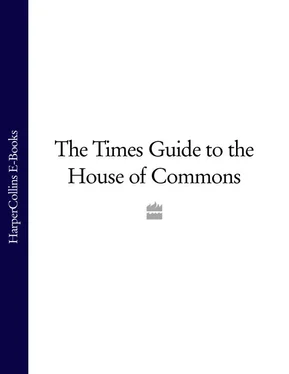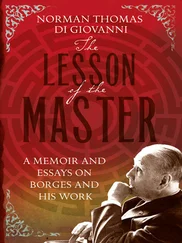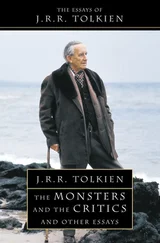Most EDMs are cobbled together by pressure groups with some simple-minded campaign message to promote, who have found some sympathetic, or fearful, MPs to act as proposers. The pressure groups’ main purpose, however, is not to create pressure for change but to give their supporters something to do, or merely to build the group’s database. Supporters are given pre-printed postcards to send to their MPs (or, increasingly, preprepared emails) urging the MP to ‘sign EDM no XXX’. The pressure group always gives the impression that signing the EDM is a matter of vast importance, a deception many MPs are happy to go along with if it impresses constituents or a gullible local newspaper.
But the attraction of signing EDMs is that it takes far less energy than the other method of making sure that one’s name appears in the local media, namely the intervention game. The intervention game consists of saying the name of one’s constituency – or, better still, the name of one’s local newspaper – on the record in the chamber or in Westminster Hall as many times as possible.
To achieve this end, MPs scan the agenda to look for opportunities to intervene in questions or debates and then rush from place to place so that they can pop up, utter the name of their constituency and disappear to the next opportunity as soon as is decent (or even sooner). The verb for this activity is ‘to ketter’, in honour of one of its greatest devotees in the 2005 Parliament, Philip Hollobone, the MP for Kettering, who managed to work the name of his constituency into almost every debate.
A determined ketterer will put down questions containing the name of his or her constituency to every department, including the Foreign Office and the House of Commons catering committee. If the question does not come out of the hat, the ketterer will turn up and ‘bob’ (stand up to try to catch the Speaker’s eye) in the hope of being able to ask it anyway. The ketterer will also turn up at the start of every debate to intervene on the minister to ask a question of astounding irrelevance to the debate, but that, naturally, contains the name of the ketterer’s constituency. Ketterers are, of course, a menace for those interested in parliamentary debate, but their party organisations love them, because, from the point of view of the party, the only point of an MP is to achieve re-election, and the only function of Parliament is to assist the MP in that task.
In days past, MPs would deal with all the waiting in another way, namely in other jobs. But second jobs have become very much frowned upon, to the extent that after the expenses crisis the House passed a motion that has been interpreted as meaning that MPs have to report every hour they spend not just in other paid work but even in volunteering.
This is the infamous 168-hour rule, the rule that MPs are MPs for every hour of the week, with no time off at all for anything else. Even writing a book or an article on politics, paid or not, is seen as a shameful activity to be reported to the authorities. One suspects that in the future those MPs who sleep more hours a night than Margaret Thatcher managed with will have to obtain permission from the Independent Parliamentary Standards Authority. But the effect of the 168-hour rule is that MPs will have to spend even more time just waiting.
One wonders what sort of people will want to be MPs in the future. The combination of minor celebrity status, with its constant observation by the media, enforced inactivity and being cooped up in the same place for weeks on end is reminiscent of only one thing. Welcome, then, to the Big Ben Brother House.
MPs who stood down before the election
Conservative
Ainsworth, PeterSurrey East
Ancram, MichaelDevizes
Atkinson, PeterHexham
Boswell, TimothyDaventry
Browning, AngelaTiverton & Honiton
Butterfill, Sir JohnBournemouth West
Cormack, Sir PatrickStaffordshire South
Curry, DavidSkipton & Ripon
Fraser, ChristopherNorfolk South West
Goodman, PaulWycombe
Greenway, JohnRyedale
Gummer, JohnSuffolk Coastal
Hogg, DouglasSleaford & North Hykeham
Horam, JohnOrpington
Howard, MichaelFolkestone & Hythe
Jack, MichaelFylde
Key, RobertSalisbury
Kirkbride, JulieBromsgrove
Lait, JacquiBeckenham
Lord, Sir MichaelSuffolk Central & Ipswich North
MacKay, AndrewBracknell
Maclean, DavidPenrith & The Border
Malins, HumfreyWoking
Maples, JohnStratford-on-Avon
Mates, MichaelHampshire East
Moss, MalcolmCambridgeshire North East
Spicer, Sir MichaelWorcestershire West
Spring, RichardSuffolk West
Steen, AnthonyTotnes
Taylor, IanEsher & Walton
Viggers, Sir PeterGosport
Widdecombe, AnnMaidstone & The Weald
Wilshire, DavidSpelthorne
Winterton, AnnCongleton
Winterton, Sir NicholasMacclesfield
Armstrong, HilaryDurham North West
Austin, JohnErith & Thamesmead
Battle, JohnLeeds West
Blackman, LizErewash
Browne, DesKilmarnock & Loudoun
Burgon, ColinElmet
Byers, StephenTyneside North
Caborn, RichardSheffield Central
Challen, ColinMorley & Rothwell
Chapman, BenWirral South
Chaytor, DavidBury North
Clapham, MichaelBarnsley West & Penistone
Clelland, DavidTyne Bridge
Cohen, HarryLeyton & Wanstead
Cousins, JimNewcastle upon Tyne Central
Cryer, AnnKeighley
Cummings, JohnEasington
Curtis-Thomas, ClaireCrosby
Davies, QuentinGrantham & Stamford
Dean, JanetBurton
Devine, JimLivingston
Ennis, JeffBarnsley East & Mexborough
Etherington, BillSunderland North
Fisher, MarkStoke-on-Trent Central
Follett, BarbaraStevenage
George, BruceWalsall South
Gerrard, NeilWalthamstow
Griffiths, NigelEdinburgh South
Grogan, JohnSelby
Hall, MikeWeaver Vale
Heal, SylviaHalesowen & Rowley Regis
Henderson, DougNewcastle upon Tyne North
Heppell, JohnNottingham East
Hesford, StephenWirral West
Hewitt, PatriciaLeicester West
Hill, KeithStreatham
Hoon, GeoffAshfield
Howells, Dr KimPontypridd
Hughes, BeverleyStretford & Urmston
Humble, JoanBlackpool North & Fleetwood
Hutton, JohnBarrow & Furness
Iddon, Dr BrianBolton South East
Ingram, AdamEast Kilbride, Strathaven & Lesmahagow
Jones, MartynClwyd South
Jones, LynneBirmingham Selly Oak
Читать дальше












